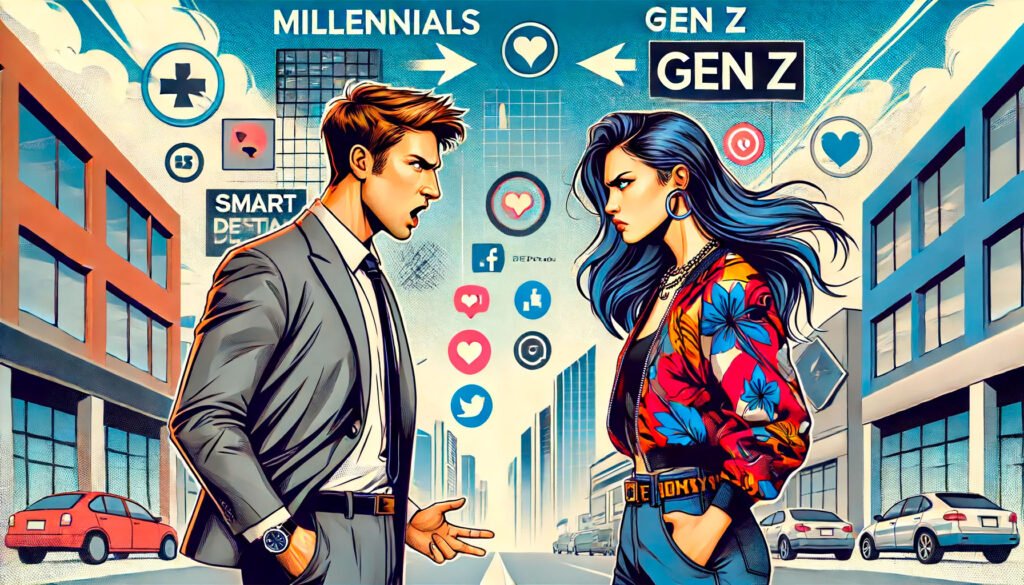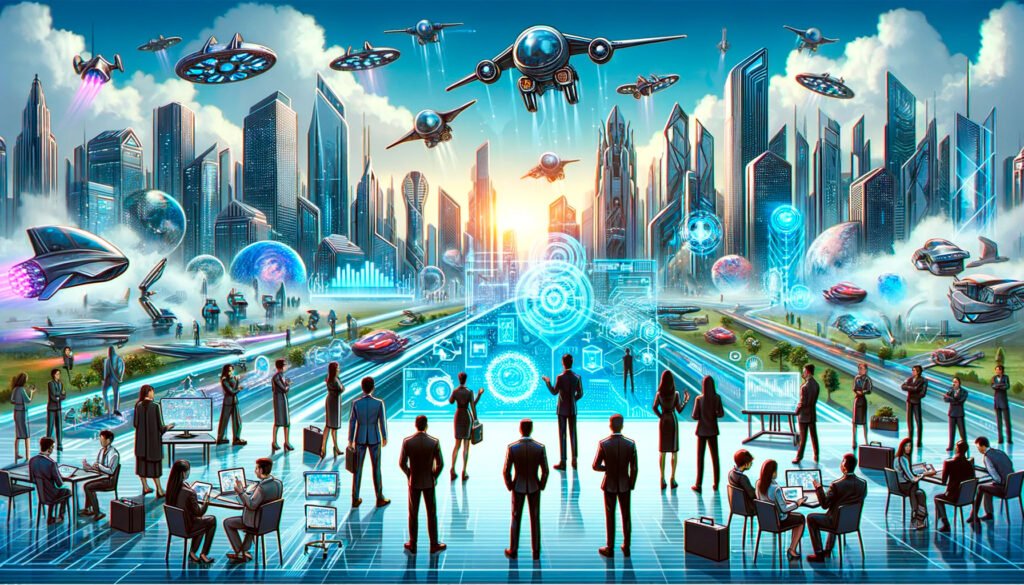Explore the key differences between Millennials vs Gen Z, and delve into an analysis of which generation tends to earn more money
The Millennials generation embrace work-life balance and digital innovation, while Gen Z champions diversity, inclusivity, and financial stability, highlighting the differences in Millennials vs Gen Z. Millennials vs Gen Z highlights that Millennials, born between 1980 and 1995, experienced the dawn of the internet and digital technology.
They seek work-life balance and flexibility in their careers, often pursuing jobs with purpose. Economic challenges, like high student debt and a tough job market during the Great Recession, significantly impacted them.
Millennials vs Gen Z shows that Gen Z, born from 1996 to the early-mid 2000s, grew up with smartphones and social media, making them highly tech-savvy. In the U.S., about 90 million individuals are part of this generation.
They value diversity and inclusivity, frequently advocating for social justice and environmental issues. Gen Z is practical about education and careers, focusing on stability and financial security.
Between Millennials and Gen Z lies a micro-generation known as Zillennials (or Zennials). These individuals, born on the cusp of the two generations, blend traits from both groups.
Often children of younger Baby Boomers and Generation X, Zillennials bridge the gap between Millennials and Gen Z, sharing experiences and characteristics from both worlds. Millennials vs Gen Z shows distinct differences in workplace values. Millennials, born between 1980 and 1995, followed Generation X and came before Generation Z.
Known as digital pioneers, they witnessed the rise of the internet and digital technology. They grew up with computers and the internet, making them tech-savvy and adaptable. Many pursued higher education, emphasizing personal and professional development.
In the workplace, Millennials value work-life balance, flexibility, and purposeful careers. They change jobs more frequently than previous generations, seeking environments that match their values.
Economic challenges of the two generations
However, they faced economic challenges, such as high student debt and a tough job market during the Great Recession, affecting their financial stability. Millennials vs Gen Z also notes that Gen Z includes those born between 1996 and the early to mid-2000s. They grew up with smartphones, social media, and instant access to information, shaping their communication styles and worldviews.
With strong digital literacy, they stay aware of global events and trends. Gen Zers are practical about education and careers, seeking affordable paths to stable employment. Growing up amid Millennials’ financial challenges made them cautious and financially literate.
They prioritize financial security and seek stable job opportunities. Despite their youth, Gen Zers already influence markets, culture, and technology with their unique perspectives.
Millennials vs Gen Z: these two generations, although close in age, exhibit unique characteristics and values that shape their worldviews and approaches to life and work. Understanding these differences helps in appreciating the diverse perspectives they bring to the table. Millennials embrace work-life balance and digital innovation, while Gen Z champions diversity, inclusivity, and financial stability.
Millennials vs Gen Z highlights that Millennials, born between 1980 and 1995, experienced the dawn of the internet and digital technology. In the U.S., around 80 million people belong to this group.
They seek work-life balance and flexibility in their careers, often pursuing jobs with purpose. They value diversity and inclusivity, frequently advocating for social justice and environmental issues. Gen Z is practical about education and careers, focusing on stability and financial security.
Zillennials micro-generation
Between Millennials and Gen Z lies a micro-generation known as Zillennials (or Zennials). These individuals, born on the cusp of the two generations, blend traits from both groups.
Often children of younger Baby Boomers and Generation X, Zillennials bridge the gap between Millennials and Gen Z, sharing experiences and characteristics from both worlds. Millennials vs Gen Z shows distinct differences in workplace values. Millennials, born between 1980 and 1995, followed Generation X and came before Generation Z.
Known as digital pioneers, they witnessed the rise of the internet and digital technology. They grew up with computers and the internet, making them tech-savvy and adaptable. Many pursued higher education, emphasizing personal and professional development.
In the workplace, Millennials value work-life balance, flexibility, and purposeful careers. They change jobs more frequently than previous generations, seeking environments that match their values.
However, they faced economic challenges, such as high student debt and a tough job market during the Great Recession, affecting their financial stability. Millennials vs Gen Z also notes that Gen Z includes those born between 1996 and the early to mid-2000s. In the U.S., around 90 million individuals are part of this generation.
They grew up with smartphones, social media, and instant access to information, shaping their communication styles and worldviews. Gen Z is highly tech-savvy, often surpassing previous generations in digital tool usage. Growing up amid Millennials’ financial challenges made them cautious and financially literate.
They prioritize financial security and seek stable job opportunities. Despite their youth, Gen Zers already influence markets, culture, and technology with their unique perspectives.
Millennials vs Gen Z: these two generations, although close in age, exhibit unique characteristics and values that shape their worldviews and approaches to life and work. Understanding these differences helps in appreciating the diverse perspectives they bring to the table.
Who Makes More Money? Millennials vs Gen Z
Gen Z earns less than Millennials did at the same age. As of late 2023, Gen Z individuals aged 22 to 24 made an average of USD 45,493. A decade ago, Millennials at the same age, adjusted for inflation, earned USD 51,825, according to a recent TransUnion study. However, 25-year-old Gen Z-ers have higher household incomes, averaging over USD 40,000, which is more than 50% higher than Baby Boomers at the same age.
In the comparison of Millennials vs Generation Z, it’s clear that Generation Z is becoming more dominant in the workforce. In developed countries, there are at least 250 million people born between 1997 and 2012, with about half now employed.
In the U.S., the number of full-time working Gen Z-ers is set to surpass Baby Boomers. The country now has over 6,000 Gen Z chief executives and 1,000 Gen Z politicians. As their influence grows, businesses, governments, and investors must pay attention to this generation.
Although Millennials might be considered the “richest generation in history,” both Millennials and Gen Z face greater financial struggles compared to previous generations. Rising costs of living, including food and housing, present significant challenges.
Key takeaways from the Millennials vs Generation Z comparison highlight differences in workplace attitudes. The Way to Work survey, which included 1,001 Americans mostly in college or recently graduated, shows that Gen Z is more worried about education costs, with 21% of respondents citing it as a concern, compared to 13% of Millennials.
Millennials prioritize stability, with 34% valuing it, while 32% of Gen Z emphasize finding their dream job. Additionally, 42% of Gen Z follow their parents’ influence, compared to 36% of Millennials.




